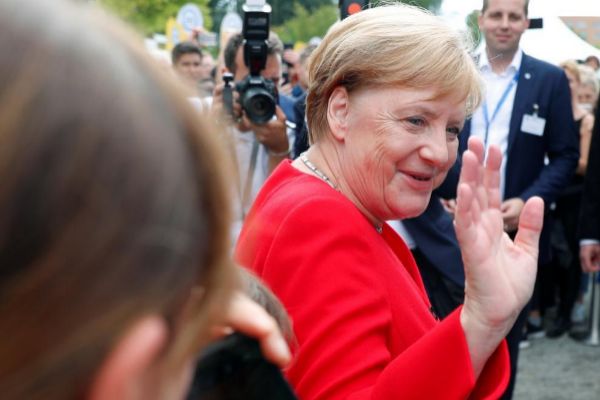- Recession: The Bundesbank warns that Germany could enter recession in the third quarter
The clouds that hover over the German economy are getting closer, and Berlin seems willing to take the initiative if the situation does not improve. The data indicating that the German economy is going straight into recession accumulate day after day. Yesterday, the German Central Bank (Bundesbank) warned in its monthly report about the possibility of a "net contraction" of economic activity. Everything indicates that the Gross Domestic Product of the main European economy could contract again in the third quarter of the year, with which it would accumulate two consecutive quarters in negative.
The German government is preparing to face the storm, and for this it seems that it could even break its sacred budget balance rule assumed 10 years ago. The cost of financing is at record lows and Germany seems willing to boost investment by assuming more debt.
Finance Minister Olaf Scholz said on Sunday that Germany has "fiscal muscle" to deal with any crisis and suggested that the German government is considering injecting 50,000 million euros of additional spending to revive the economy . The plan would contemplate the issuance of government bonds to stimulate domestic demand and avoid an escalation of unemployment, as well as tax incentives similar to those made in 2008 to the automobile industry.
This time the bonuses would aim to promote short-term contracting and energy efficiency of households. They would also increase spending on social services. A measure of such draft, however, would have to go through Parliament , so its approval is not expected in the short term.
Germany's debt level is expected to fall to approximately 58% of GDP this year from 60.9% the previous year, placing it below the ceiling of the European Union debt - set at 60% - and giving it more spending flexibility in the future. With these data on the table, Scholz defended the possibility of borrowing: "We have a level of debt in Germany in relation to GDP that is below 60%, and it is a strength that we have to use to counteract a crisis," he said. the minister
The Social Democrat said that the State must be able to live within its means and admitted that the debate has been opened in the Executive on financing debt spending. The idea of greater public spending clashes with the most orthodox approaches of German politics, marked in recent years by austerity and maximum control of public accounts. In Germany, everything that smells of inflation is viewed with extreme suspicion , since the hyperinflation experienced in the Weimar Republic is still present in the collective consciousness.
The idea of the Minister of Finance does not therefore fit the position of German Chancellor Angela Merkel, who has so far been adamant in maintaining the rule of budgetary balance. According to the Bloomberg agency, there are strong reluctances within the Merkel Executive to start moving the rescue plan. Under the current conditions, the critical sector believes that the stimuli would further encourage family savings and not demand.
A spokeswoman for the government on Wednesday rejected the possibility of implementing stimulus measures, since despite the decline in the second quarter, the German economy could grow in 2019: «Unemployment has fallen and wages are rising in real terms. In this context, the Government does not see the need for further measures to stabilize the economy. Fiscal policy is already oriented towards expansion ».
Hence, the federal government would only be willing to act in the event of a deep recession, something that is still far away. The German economy remains afloat thanks to strong domestic demand, sustained by the services sector, and a powerful labor market. However, no one denies that international turbulence is taking its toll.
The German economy has been hampered in the last quarter by the cooling of the world economy, the commercial war between the United States and China and the uncertainty of German industry regarding Brexit are the factors that undermine the German economy. To this is added the structural change in the powerful automotive industry, which is in full transformation towards electric mobility, and which has been affected by US tariffs. This sector is precisely the one that contracted the most in the first semester, 12%.
The economic sectors oriented to the national economy and not so much to exports (these fell by 8% in June) are those that least resent the impending recession, says the German agency. The construction sector is one of the most active today and thanks to it, the fall in German GDP has not been more bulky. That the main European economy backs down worries in the EU, given its influence in the rest of countries. However, Germany faces the storm from an advantageous position , with sound public finances and an unemployment rate is at record lows.
According to the criteria of The Trust Project
Know more- Germany
- GDP
- European Union
- U.S
- China
- Angela Merkel
- Unemployment
Frenazo German GDP contracted 0.1% and investment expectations plummet as in the worst of the crisis
Macroeconomics The industry slowdown worries in Spain and extends the pessimism of the recession in Germany
Macroeconomics The fall of the pound shakes Johnson's hard Brexit

